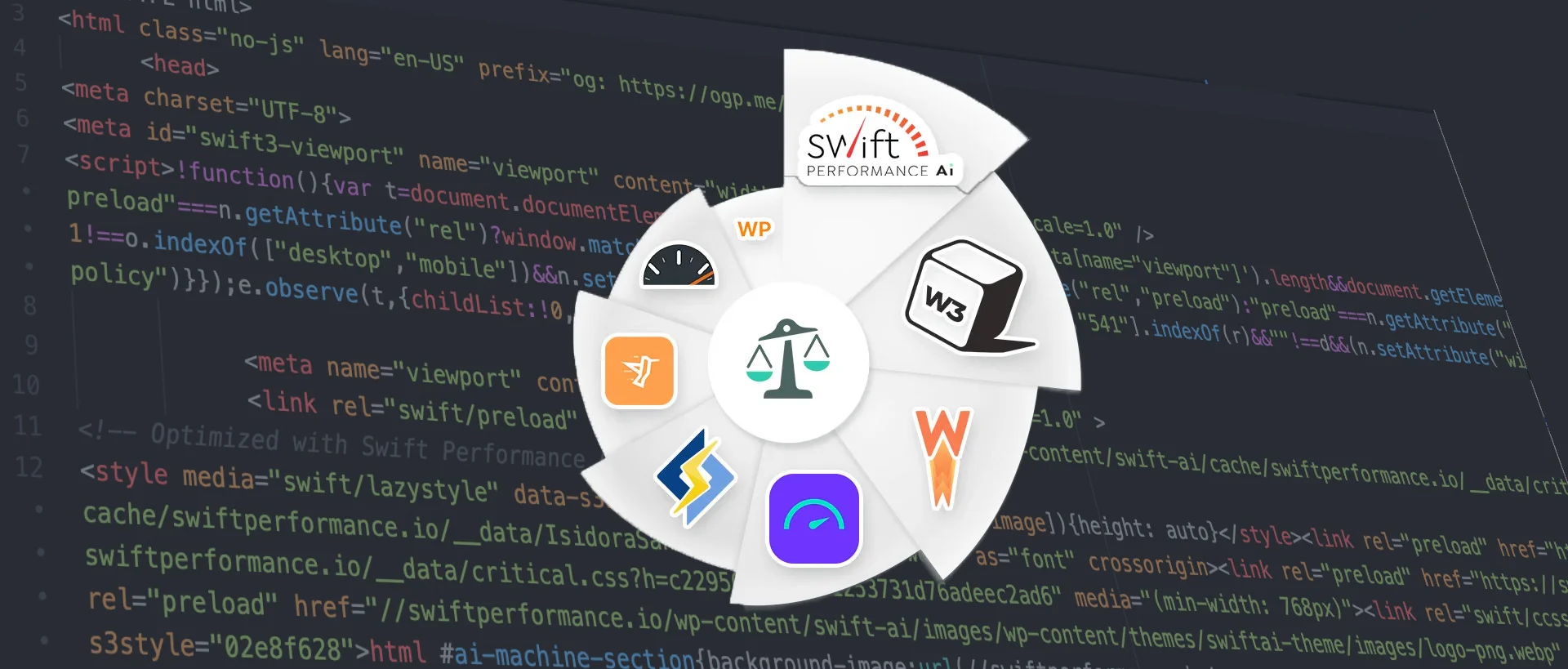Most cache plugins simply delay JavaScript loading, which can lead to various problems. We are going to check what kind of errors can occur because of delaying scripts, and how Swift Performance AI can do it better.
Runtime Errors
When a webpage loads, certain events are triggered (like DOMContentLoaded, load, etc). Many JavaScript functions only run after these events are triggered because this ensures that elements (like buttons, images, etc.) they work with are already present in the DOM.
Most developers aren’t prepared for their plugin or theme JavaScript files to be delayed in loading. Therefore, by the time the JavaScript loads, the DOMContentLoaded and load events may have already happened. In this case, some functions may never execute, which could result in missing or malfunctioning elements (like swipers, sliders, popups, menu, or other interactive elements).
It’s also possible that the execution order changes, which can lead to errors.
Traditional cache plugins address this by allowing scripts to be manually excluded from the delay, which is time-consuming and difficult to test for every feature of the site to ensure it works correctly. Moreover, if one script is excluded, then every script that depends on it must also be excluded (like jQuery).
Double Click Issues
Since traditional cache plugins load scripts only upon user interaction (like click, mousemove, scroll, keypress, etc.), a script might not execute on the initial click that triggers its loading. This is common on mobile devices where there’s no mouse movement event, so nothing happens when you first click on the mobile menu (actually, the scripts are just then loading), and it only responds on the second or third click.
The same problem can occur with embedded videos, which might just show a placeholder image on the first click on a mobile device, loading the video but not playing it.
Since the script node is replaced during loading, it’s possible that some information stored in the HTML tag could be lost. Most cache plugins can handle this, but special cases might still experience issues.
Rendering Problems
As mentioned in previous part, even though we delay the JavaScript, because the user moves the mouse, scrolls, or clicks, in real world scripts will run almost immediately. However, because scripts necessary for rendering (like mega menus, sliders, etc.) only run after user interaction, they can cause ugly rearrangements in the layout. This not only ruins the user experience but also affects the Cumulative Layout Shift (CLS), which can impact our SEO results.
How Does Swift Performance AI Solve These Problems?
Swift AI uses modern JavaScript optimization, which means it doesn’t wait to load scripts but forces low priority and loads them in the background, saving the main thread for faster rendering.
It also uses smart solutions (like RUSM) to avoid double-click issues, like with mobile menus or videos.
Since Swift AI only delays non-critical scripts, it doesn’t cause rendering issues, avoiding jumps in the layout and reducing the CLS.








